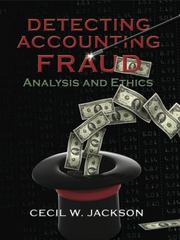Question
1.A stock paying $ 15857.855 conveys no benefits. The prospective pays that the stock may sell for toward the year$s end with the individual probabilities
1.A stock paying $ 15857.855 conveys no benefits. The prospective pays that the stock may
sell for toward the year$s end with the individual probabilities are:
Worth Probability
968.52 0.255
198.58 0.635
174.65 0.968
159.85 0.153
197.54 0.962
284.85 0.881
Required:
I. Compute the ordinary return.
ii. Compute the Standard deviation of benefits.
2. The Plan of action for convergence by which the Container of the check can get the portion simply through a decided bank is called
(a) Everyday convergence
(b) Special passing point
(c) Account payee crossing
(d) None of the previously mentioned
3. The Plan of action for convergence in which the profits are to be credited unmistakably to the record of the payee or the social affair named or his delegate is called
(a) General convergence
(b) Special convergence
(c) Statement payee passing
(d) All of the previously mentioned
4. The Negotiable utensils Act makes express notification of three utensils, explicitly check, bill of exchange and
(a) Bank Note
(b) Hundi
(c) Bank draft
(d) Customary Note.
5. In legal terms, a person who gets an easy to refute utensil in consistence with normal conventionality and for significant idea is known as
(a) Container
(b) Container for regard
(c) Container at the designated time
(d) Container in rights.
6. An easily proven wrong utensil rapidly for portion is resolved is payable.
(a) After affiliation
(b) After visible
(c) After one month
(d) On solicitation
7. A bill of exchange payable to transporter on demand is
(a) Rational
(b) Voidable
(c) Invalid
(d) Conditional.
8. The Law of Contract is proposed to ensure that what a man has been communicated to not corporate will occur, that what has been ensured to him will be performed.
a. Sir William Anson
b. Sir George Bhush
c. Sir William Shakespeare
d. Sir David Gibbs
9. The Law of Contract contains the fundamental piece of ... law.
a. interchange
b. business
c. Both an and b
d. None
10. Arrangement Act came into power from ... .
a. September,1872.
b. October, 1872
c. September, 1873
d. October, 1873
Step by Step Solution
There are 3 Steps involved in it
Step: 1

Get Instant Access to Expert-Tailored Solutions
See step-by-step solutions with expert insights and AI powered tools for academic success
Step: 2

Step: 3

Ace Your Homework with AI
Get the answers you need in no time with our AI-driven, step-by-step assistance
Get Started


